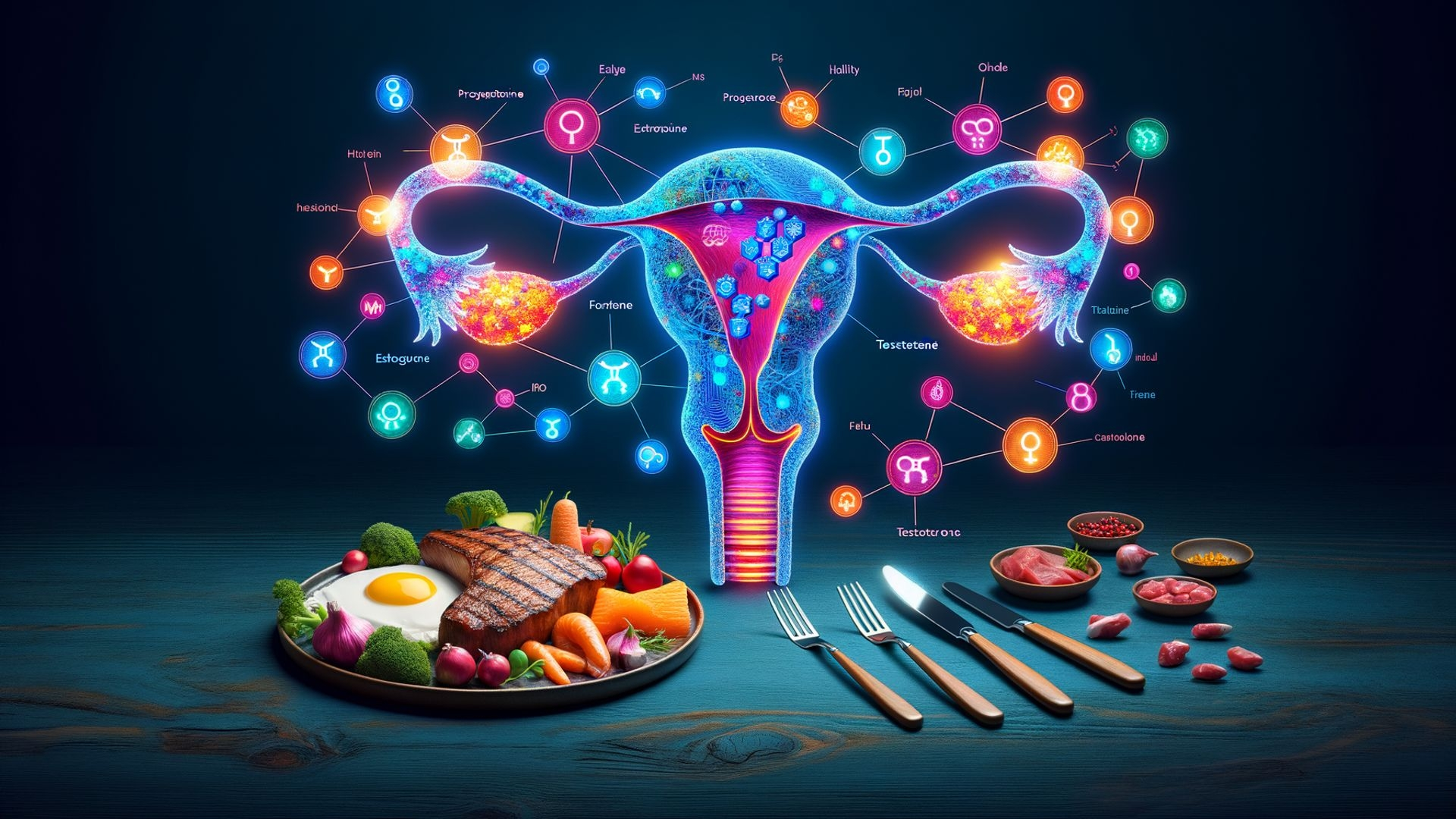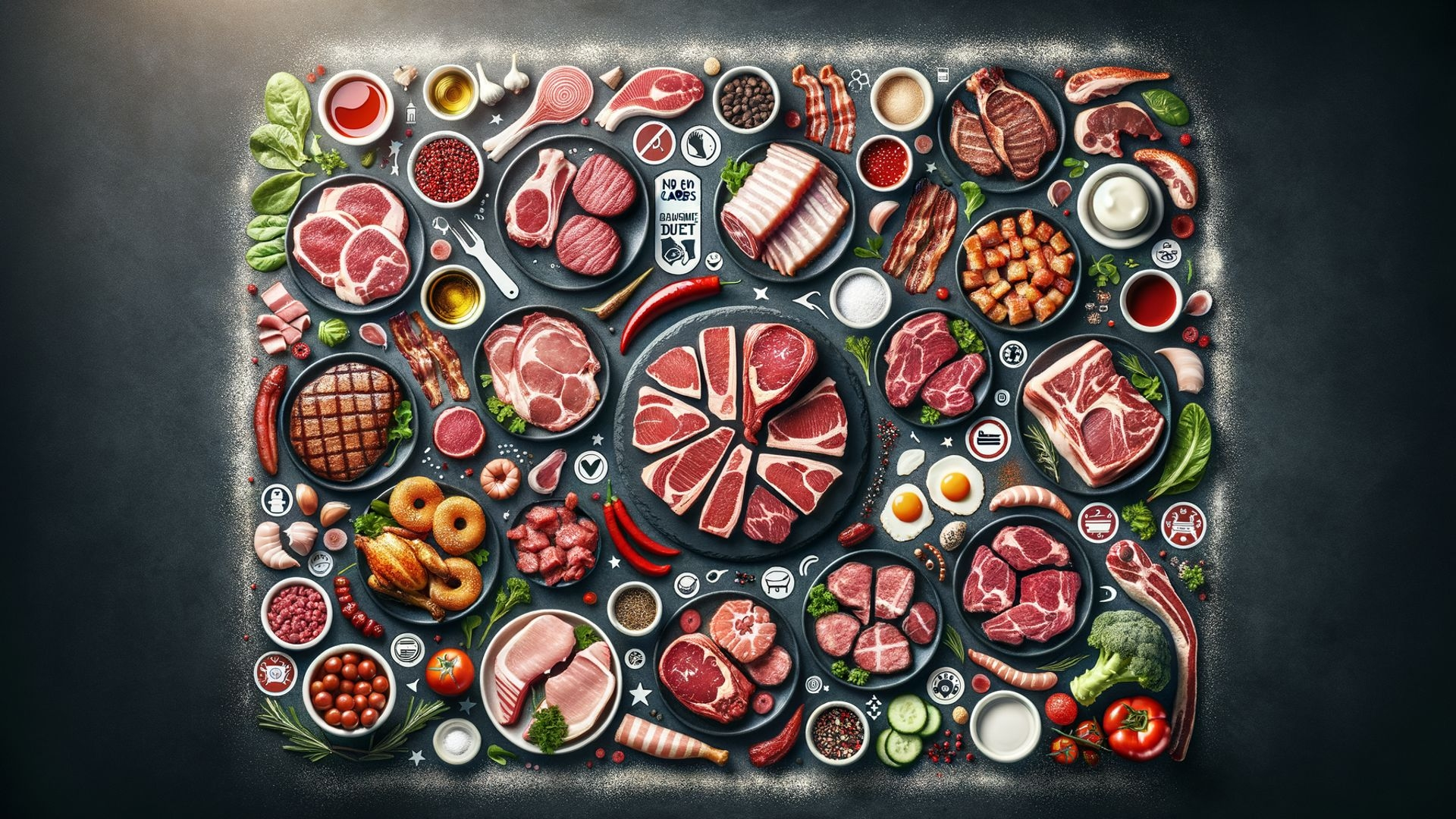Handle Sugar Cravings on a Carnivore Diet
Embarking on a carnivore lifestyle brings its share of hurdles, particularly in dealing with intense sugar cravings. Grasping the effects of sugar and carbs on the body and learning strategies to manage these cravings are vital for staying true to a high-fat, animal-based diet amidst dietary changes.
It’s crucial to consider how the diet can influence our perspective on sugar and take proactive steps to maintain dietary adherence. Basically, if you recently started the carnivore diet and you are craving sugar, we got your back.
Understanding Cravings on a Carnivore Diet
When delving into cravings on a carnivore diet, it’s crucial to explore the influence of sugar. Sugar cravings can be intense, leading to challenges in sticking to the plan. Practical strategies need to be in place to manage these cravings effectively while adapting to a sugar-deprived way of eating. One way to combat sugar cravings on a carnivore diet is to focus on consuming adequate protein and healthy fats with each meal.
Protein and fat can help keep you feeling full and satisfied, which can help reduce the urge to reach for sugary snacks. Additionally, staying hydrated and getting enough electrolytes can also help curb cravings.
It’s also important to be mindful of any emotional triggers that may be leading to sugar cravings. Stress, boredom, and other emotions can often drive us to seek out comfort in sugary foods. Finding alternative coping mechanisms, such as going for a walk, practicing mindfulness, or engaging in a hobby, can help break the cycle of emotional eating.

Exploring the Impact of Sugar
Sugar can disrupt your body’s natural balance, causing fluctuations in energy levels and mood swings. Understanding how sugar impacts you can help in making informed choices to reduce sugar intake and cravings on a carnivore diet.
When you consume sugar, your body releases insulin to help regulate your blood sugar levels. This can lead to a sudden spike in energy followed by a crash, leaving you feeling tired and irritable. Additionally, excess sugar consumption can contribute to inflammation in the body, leading to a host of health issues including obesity, diabetes, and heart disease.
Tips to Handle Sugar Cravings
Managing cravings on a carnivore diet demands discipline and a strategic approach. By incorporating satisfying high-fat and protein meals, you can curb sugar cravings and stay on track with your dietary goals.
Here are some tips for managing cravings on a carnivore diet:
1. Plan ahead: Make sure you have plenty of satiating carnivore-friendly foods on hand to prevent the urge to reach for sugary or processed snacks. Stock up on fresh meat, eggs, cheese, and other high-fat options.
2. Focus on protein and fat: Protein and fat are essential for satiety and can help keep cravings at bay. Incorporate plenty of fatty cuts of meat, eggs, and cheese into your meals to help you stay full and satisfied.
3. Stay hydrated: Sometimes our bodies confuse hunger with thirst, so it’s important to stay hydrated throughout the day. Drinking plenty of water can help reduce cravings and keep you feeling full.
4. Avoid trigger foods: If certain foods trigger cravings for you, it’s best to avoid them altogether. This may include processed foods, sugary treats, or even certain types of meat that don’t sit well with your body.
5. Practice mindful eating: Take the time to savor your meals and pay attention to how your body feels before and after eating. This can help you better understand your hunger cues and make more mindful choices when it comes to food.
6. Find healthy alternatives: If you’re craving something sweet, try incorporating naturally sweet foods like berries or a small piece of dark chocolate into your diet. These options can help satisfy your cravings without derailing your carnivore diet.
By following these tips and staying committed to your dietary goals, you can successfully manage cravings on a carnivore diet and stay on track with your health and wellness journey.
Adapt to Sugar Deprivation Through Carnivore and Keto Cooking
The adaptation phase to a low-carb, high-fat diet can be challenging, especially when dealing with sugar cravings. Utilizing techniques such as intermittent fasting and monitoring your progress can aid in overcoming these initial hurdles.
Intermittent fasting can help regulate blood sugar levels and reduce cravings by restricting the times in which you eat, resulting in a more stable energy level throughout the day. Additionally, monitoring your progress by keeping track of your weight, measurements, and how you feel can provide motivation and help you see the benefits of sticking to your new diet.
It’s important to be patient with yourself during this adaptation phase and not give in to temptation. Over time, your body will adjust to the new way of eating and you should start to notice a decrease in sugar cravings. Remember that everyone’s journey is different, so it’s important to find what works best for you and listen to your body’s cues.
Dealing with Cravings during the Adaptation Phase
During the adaptation phase, it’s vital to have effective strategies in place to manage cravings and maintain ketosis. Intermittent fasting can play a significant role in regulating hunger cues and aiding in the transition to a carnivore diet.
One way to incorporate intermittent fasting into a carnivore diet is to practice time-restricted feeding, where you eat within a specific window of time each day and fast for the remaining hours. This can help regulate hunger hormones and promote fat adaptation as your body learns to rely on stored fat for energy.
Another strategy is to stay well-hydrated and consume electrolytes to combat cravings and stay in ketosis. Drinking plenty of water and consuming salt, magnesium, and potassium-rich foods can help prevent common side effects of the adaptation phase, such as keto flu.
It’s also important to focus on nutrient-dense, high-quality animal-based foods to ensure you are getting all the essential nutrients your body needs. Incorporating organ meats, fatty cuts of meat, and bone broth can provide important vitamins and minerals that may be lacking in a strict carnivore diet.
Lastly, staying consistent with your meal timing and composition can help regulate hunger and cravings. Planning out your meals in advance and sticking to a routine can make it easier to stay in ketosis and avoid indulging in non-carnivore foods.
Overall, incorporating intermittent fasting and prioritizing nutrient-dense animal foods can help manage cravings and support a successful transition to a carnivore diet during the adaptation phase.
Strategies for Managing Cravings
Implementing techniques like a distraction, staying hydrated, and consuming electrolyte-rich foods can help in managing cravings effectively and prevent unnecessary snacking. You can also be more mindful when you eat, keep carnivore snacks on hand, and just eat bacon. Bacon is one of the ways a lot of people get over the sugar cravings.
The Role of Intermittent Fasting
Intermittent fasting can optimize fat intake and boost ketosis, ultimately supporting the adaptation phase and reducing sugar cravings on a carnivore diet. By incorporating intermittent fasting into a carnivore diet, individuals can enhance their body’s ability to burn fat for fuel and enter a state of ketosis more quickly.
This can lead to increased weight loss and improved metabolic health. Additionally, intermittent fasting can help reduce sugar cravings and promote better insulin sensitivity, which is beneficial for overall health and well-being.
During periods of fasting, the body is forced to switch to using stored fat for energy, which can lead to increased fat burning and weight loss. Additionally, fasting has been shown to increase the production of ketones, which are byproducts of fat metabolism and provide an alternative fuel source for the body.
By incorporating intermittent fasting into a carnivore diet, individuals can support the adaptation phase and make it easier for their bodies to transition to using fat as a primary fuel source.
Moreover, intermittent fasting has been shown to have numerous health benefits, including improved blood sugar control, reduced inflammation, and enhanced brain function. By combining intermittent fasting with a carnivore diet, individuals can optimize their fat intake, support ketosis, and promote overall health and well-being.
Transitioning to a Low-Carb Carnivore Diet
Transitioning to a low-carb carnivore diet involves exploring alternatives to sugar, such as high fat foods. Embracing the ribeye diet and carefully managing carb intake can pave the way for a sustainable carnivore lifestyle.
One way to transition to a low-carb carnivore diet is to focus on high-fat foods like fatty cuts of meat, cheese, butter, and avocado (if you are the type of carnivore that wants to incorporate fruit here and there). These foods can help you feel satisfied and provide the necessary nutrients for your body.
Embracing the Ribeye and Beef Diet (Carnivore Lifestyle)
The ribeye diet emphasizes the consumption of high-quality animal-based foods rich in essential nutrients, supporting overall health and managing cravings on a carnivore diet. Ribeye steak is a primary component of the ribeye diet as it is a high-quality source of protein, healthy fats, and essential nutrients like iron, zinc, and vitamin B12.
Other foods commonly included in the ribeye, or carnivore diet are eggs, organ meats, and bone broth, all of which provide additional essential nutrients and support optimal health.
The ribeye diet focuses on eating nutrient-dense animal-based foods while minimizing or eliminating processed foods, grains, and sugar. By prioritizing nutrient-rich foods, followers of the ribeye diet may experience benefits such as improved energy levels, mental clarity, and muscle development.
Strategies for Long-Term Sugar Craving Management
For long-term sugar craving management on a carnivore diet, adapting keto principles can be beneficial. Monitoring your progress, making adjustments as needed, and implementing effective strategies can significantly contribute to your success in handling sugar cravings.
Keto Adaptations for Sugar Cravings
Utilizing the principles of a keto diet, which emphasizes low-carb and high-fat consumption, can help in maintaining satiety and reducing sugar cravings over time on a carnivore diet. By focusing on consuming mostly meat and animal products, the body stays in a state of ketosis, where it burns fat for fuel instead of carbohydrates.
This can lead to increased feelings of fullness and reduced cravings for sugary foods. Additionally, the high-fat content in a keto diet provides a stable source of energy, helping to maintain consistent energy levels throughout the day.
Monitoring Your Progress on the Carnivore Diet
Regularly tracking your dietary habits and evaluating how your body responds can provide valuable insights into managing sugar cravings and making sustainable lifestyle changes. When you are aware of your progress and you are tracking everything, you will tend to be more aware of your cravings and you will make better decisions.
Efficiently Managing Cravings on the Carnivore Diet
Efficiently handling sugar cravings on a carnivore diet involves building resilience against temptations and implementing practical steps to overcome cravings for high-carb foods. By maximizing your results and sticking to your dietary plan, you can achieve your health goals effectively.
Building Resilience Against Cravings
Developing mental fortitude and establishing healthy eating patterns can help in resisting sugar cravings and remaining focused on your carnivore way of eating. Time is your best friend. The longer you go without feeding your body the addictive sugars found in tons of foods these days, the easier and more resilient you will get. It takes time for you adapt to the carnivore lifestyle, but for a lot of people it is absolutely worth it.
Most people go on a carnivore diet because they are having problems with their bodies or the way they feel eating the Standard American Diet (SAD Diet) or the current diet they are on. We have been told plant-based foods are healthy for us and a meat-only diet is terrible. Have we been lied to? Yes, you should incorporate physical activity regardless of the way you eat, but you are also what you eat. So eating sugar may make you sweet (yep, we got jokes sometimes), but your body is made of protein so keeping your insulin levels down and eating fat and protein rather than carbohydrates is a great way to strengthen your body with the nutrients it needs to thrive.
The lack of dietary fiber is also a topic that is frowned upon by the standard medical society here in America. A lot of doctors that support the carnivore diet have actually discovered that the human body doesn’t even need fiber at all and that it may actually be bad for us. The body adapts and it is up to you to experiement with how you feel while also staying healthy. You make the decisions for yourself.
The desire for sugar is there, especially if you have eaten it your entire life. The carnivore diet can lead to a whole new way of living, but you have to give it a try and let those sugar addictions subside. You will build resilience and you will overcome the addiction of sugar if you truly want to. We hope you enjoyed this article and we’ll see you in the next one.
Carnivore Diet Sugar Cravings Frequently Asked Questions
What is a carnivore diet?
A carnivore diet is a dietary approach that emphasizes consuming meat and animal products while excluding all other food groups.
How can I manage sugar cravings on a carnivore diet?
To manage sugar cravings on a carnivore diet, focus on including enough fats and protein in your meals, staying hydrated, and ensuring you’re not hungry by eating enough at each meal.
How can I progress on a carnivore diet despite craving sugar?
To progress on a carnivore diet despite craving sugar, consider seeking guidance from a healthcare professional to address any underlying issues, stabilize blood sugar levels, and find alternative ways to satisfy your cravings for sugar without compromising the diet. Also, bacon!
Can a carnivore diet help with sugar addiction?
Adopting a carnivore diet may help some individuals manage sugar addiction by eliminating added sugars and carbohydrates from their diet, leading to a reduced reliance on sugar as a fuel source. It takes time to overcome sugar addiction being that it is as addictive as cocaine (so we’ve heard), but over time your body will stop craving it as much. Time heals all.
Why do some people experience carb cravings on a carnivore diet?
Some people may experience carb cravings on a carnivore diet due to the body’s adjustment period as it transitions from a diet often high in carbohydrates and sugar to one that primarily consists of meat only. This can lead to temporary cravings for the familiar energy source.








